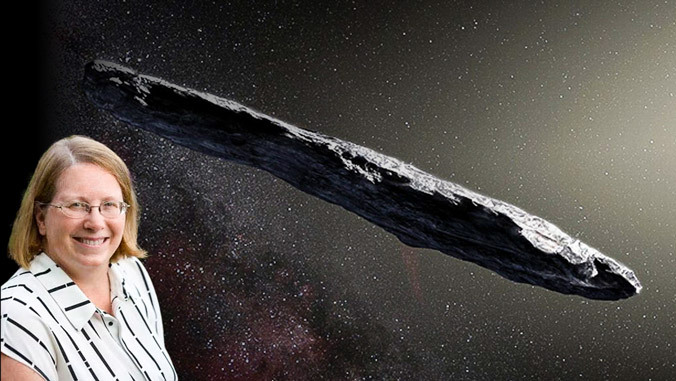
Karen Meech has spent her career chasing big questions—like how habitable worlds form and whether or not life exists beyond Earth. Now, the University of Hawaiʻi astronomer has been named a 2024 Fellow of the American Association for the Advancement of Science (AAAS), one of science’s highest honors. She is one of 471 researchers nationwide recognized this year.
Meech, a professor at UH’s Institute for Astronomy, has taught at UH Mānoa since 1988. She traces her fascination with the universe to childhood nights spent sleeping under the stars in Colorado.
“The rich interdisciplinary research environment at UH has truly stimulated the pursuit of bigger picture questions,” said Meech. “By interacting with other disciplines you not only provide your own expertise, but also learn from other experts. It is this intersection that often sparks the ‘aha’ moment or innovative idea that can lead to scientific breakthroughs from unexpected directions. This makes the science both exciting and fun!”
Headliner discovery

Meech is a leading voice in planetary science. In 2017, she led the international team that studied ʻOumuamua—the first interstellar object observed in our solar system—spotted by UH’s Pan-STARRS1 telescope. The discovery made headlines around the world.
“Karen’s career has been phenomenal, including innovative outreach programs, leading a NASA Astrobiology Institute at UH, involvement in major NASA missions, and amazing research in comets including multidisciplinary studies about the source of water on earth,” said Doug Simons, executive director at IfA. “I’m thrilled she is getting this much deserved recognition at AAAS, which is thoroughly deserved.”
- Related UH News story: UH astrophysics pioneer awarded national honor, January 23, 2023
Groundbreaking work
In 2023, Meech received the American Astronomical Society’s Dannie Heineman Prize for her groundbreaking work on comets and small solar system bodies. She’s now building a public database of comet data and designing space missions to help answer one of Earth’s oldest mysteries: how did our planet get its water?
She hopes to fund a future sampling trip to Greenland to explore that very question.

